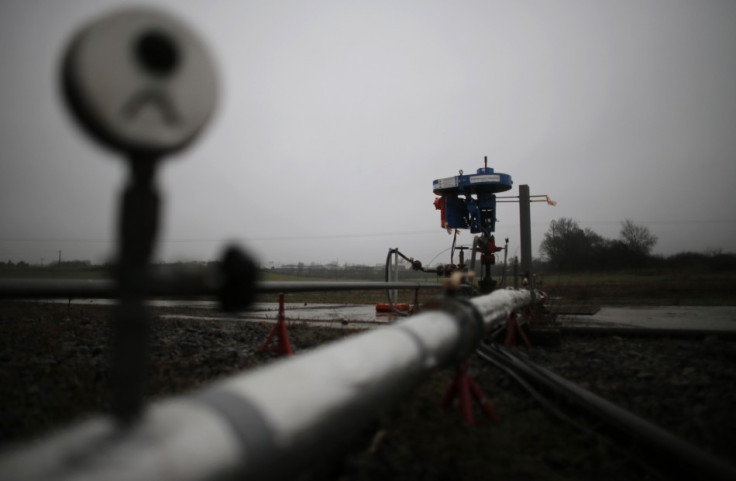UK Shale Gas: BGS Confirms Vast Reserves Under Lancashire and Yorkshire

A British Geological Survey study has confirmed that there are 1,300 trillion cubic feet of shale gas reserves lying under Yorkshire and Lancashire, although it is still unclear how much can actually be extracted.
The report suggests there may be more shale gas reserves in the UK than previously thought but exploration firms face a battle to win over local communities and convince planning authorities to allow work to be done.
To encourage exploration the government announced a funding package for communities where exploration and extraction takes place, in order to win public support.
Every affected community will get £100,000 and 1% of revenues from the unconventional gas that is successfully extracted. Firms must also sign up to a community engagement charter to ensure locals are continuously consulted about any work planned.
"Development must be done in partnership with local people. We welcome the commitments from industry on community benefits," said energy minister Michael Fallon.
"This will provide a welcome boost for communities who will host shale exploration and production as well as offering strong assurances that operators will engage with them and work to the highest health, safety and environmental standards.
"From money off bills, playgrounds, sports halls or regeneration schemes, people will see real and local advantages from shale gas production in their area."
Danny Alexander, chief secretary to the Treasury, said the BGS report "confirms the huge potential shale gas has for the UK".
The Treasury lifted its ban on shale gas exploration in December and has offered tax breaks for firms searching for the resource as a sweetener to encourage exploration.
Centrica, the parent company of British Gas, recently bought a 25% stake in a shale gas exploration licence owned by Cuadrilla for £40m.
The Bowland licence is for shale gas exploration in Lancashire, England, for an area Cuadrilla says could hold as much as 200 trillion cubic feet (tcf) of the resource.
Energy giant Centrica said further to the £40m it would also shell out up to £60m in exploration and appraisal costs.
As many as 30,000 jobs could be created by a flourishing shale gas industry in the UK and, if all could be tapped, it could power the country's electricity for a century.
Angela Knight, chief executive of industry group Energy UK, has said the country's vast shale gas reserves are unlikely to bring down bills for the consumer, despite hopes that it could make electricity cheaper.
Instead it would give the UK better energy security, making it less reliant on foreign imports of gas.
Fracking and extraction
Shale gas is extracted through the controversial fracking process. This sees hydraulics used to fracture shale rock, which then releases the gas which is tapped off. It can be done both on land or at sea.
Environmental campaigners say there are a number of risks associated with fracking. It can cause tremors, there is a risk that the chemicals used in the process can leak into the water when being conducted offshore, and onshore shale gas extraction will see flaring - the burning off of excess gas..
They also say that rather than focusing on the production of more fossil fuels, the UK should invest heavily in renewables.
However, proponents say tremors are minor and the risk of chemical leakage is negligible. The industry argues that domestic shale gas extraction will actually reduce emissions and be better for the environment than they current situation.
"If you're going to burn any hydrocarbon, and we'd all realise we'd rather not have to, but if we've got to use hydrocarbons, you're better using gas than you are using oil, and you're better using gas than you are using coal," said Andrew Austin, chief executive of British production firm IGas, at a round table debate on shale gas.
"And if you're going to use gas, you're much better to use gas which is sourced close to home. The carbon impact of shipping gas around the world is significant.
"If you're going to get involved in the carbon impact of liquefying gas in Qatar, then shipping it around the world, then re-gasifying it here, you're going to have a greater carbon impact.
"Every time you shift it around, you increase the carbon impact rather than reduce it."
Related Articles:
UK Shale Gas Revolution Faces Planning Law Hurdle
UK Shale Gas Revolution: Debate 'Hot Air' Until Reserves Confirmed
Energy UK's Angela Knight: Shale Gas Revolution May Not Lower Energy Bills
UK Government Lifts Fracking Ban for Shale Gas
Dan Byles MP: Shale Gas Could Create 30,000 Jobs and Secure UK Energy [VIDEO]
© Copyright IBTimes 2025. All rights reserved.






















